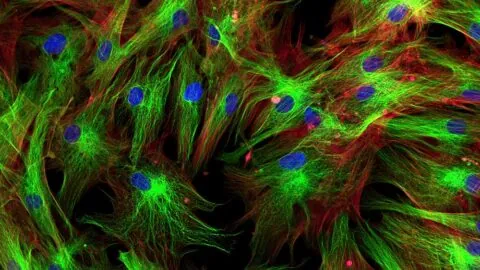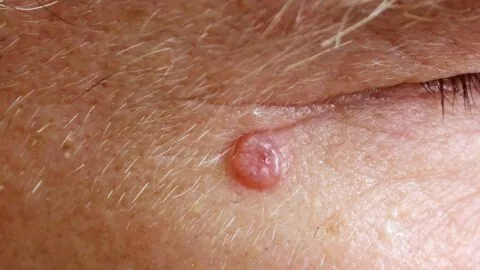February 28, 2025
Researchers publishing in Cellular Signaling have explained how the protein AP2A1 affects stress fibers that change with cellular senescence. Stress fibers Why We Age: Cellular SenescenceAs your body ages, more of your cells become senescent. Senescent cells do not divide or support the tissues of which they are part; instead, they emit potentially harmful chemical...
February 17, 2025
Researchers publishing in Matrix Biology Plus have discovered that cochlin, a protein that decreases with age, is vital for the health of tendons. Tendons require a healthy extracellular matrix Previous work has found that tendon tissues, which link muscle to bone, require a healthy extracellular matrix (ECM) to function; if the ECM is degraded, the...
October 23, 2024
Investigating the factors involved in skin rejuvenation processes, researchers have identified the role of hyaluronan and proteoglycan link protein 1 (HAPLN1) in restoring collagen and hyaluronic acid in aged skin [1]. The most noticeable sign of aging Skin aging, one of the most visible forms of aging, is influenced by both intrinsic and extrinsic factors....
November 20, 2023
A new paper published in Nature has described how the aging extracellular matrix makes it easier for cancer to grow. When cancer is skin deep Under normal circumstances, we lose and regain skin cells constantly. Old skin flakes away, and stem cells constantly divide and differentiate to replace it. This is a homeostatic balance, and...
July 14, 2023
According to a new study published in Nature Scientific Reports, while both aerobic and resistance exercise improve some aspects of skin aging, only the latter is able to increase skin thickness [1]. Exercise and skin – an overlooked connection Skin is the largest organ of the human body, providing a barrier that keeps us safe...
January 26, 2023
A new publication in Nature Aging has explained a great deal about aging of the neurovascular system, showing where and how the brain's blood supply changes with aging in a mouse model. A branching network of blood vessels In the neurovascular system, arteries lead to arterioles, which then branch off into precapillary sphincters. These lead...








